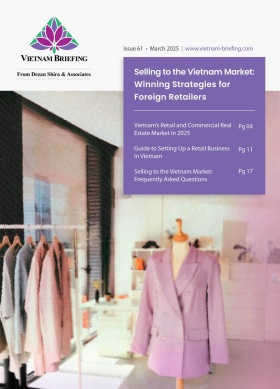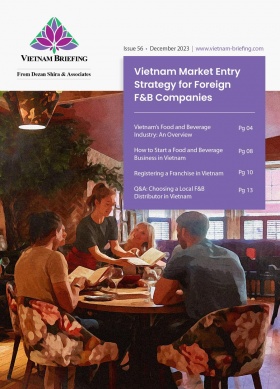Unlocking Growth: Vietnam’s Plan to Reduce Bureaucracy and Boost Investment
Vietnam is implementing key reforms to enhance its business climate, including reducing unnecessary business conditions by 30 percent. This move aligns with Vietnam’s broader commitment to fostering a more efficient and competitive economy. It is a crucial component of the country’s long-term strategy to simplify regulations, encourage business expansion, and attract greater investment.
In line with the new reforms, Vietnam is also targeting the establishment of at least one million new businesses by 2030 while striving to become one of ASEAN’s top three investment destinations. By eliminating excessive regulations, Hanoi is positioning itself as a leading economic hub, paving the way for sustained business growth.
Vietnam’s economic growth and the push for reform
Over the past two decades, Vietnam has transformed into one of Southeast Asia’s fastest-growing economies. With a rapidly expanding middle class, strong manufacturing sector, and increasing digitalization, the country has become an attractive destination for global investors.
However, despite Vietnam’s success, businesses have often faced regulatory challenges, including excessive paperwork, slow approval processes, and overlapping legal requirements. These issues have added costs and delays, making it harder for startups and small businesses to operate efficiently.
Another key challenge has been administrative red tape and corruption, which has historically led to inconsistencies in government policies and slowed down investment approvals. Vietnam ranked 77th out of 180 countries on Transparency International’s 2022 Corruption Perceptions Index, marking an improvement from 104th place in 2020.
One of the most time-consuming regulatory obstacles in Vietnam has been getting construction permits, which involves 11 steps and takes approximately 110 days to complete. Similarly, obtaining an electrical connection can take up to 115 days, creating barriers for startups trying to establish operations quickly. Even property registration in Vietnam takes an average of 57 days, longer than the OECD norm, while enforcing contracts can take around 400 days, making legal dispute resolution a lengthy and costly process.
Transforming business regulations for a more efficient economy
The government’s initiative is centered on eliminating redundant procedures in licensing, tax filing, and sector-specific permits. With a strong focus on digital transformation, authorities are replacing outdated manual processes with online business registration, e-licensing, and automated regulatory checks to improve transparency and efficiency.
Vietnam’s success in reducing bureaucracy in the past provides a strong precedent. Previous regulatory simplifications in key industries, such as technology startups and manufacturing, resulted in significant investment inflows and increased business registrations.
Strengthening local industry and innovation
The reduction of bureaucratic hurdles is expected to drive growth in key industries such as technology, manufacturing, and services. Hanoi’s commitment to fostering entrepreneurship is particularly beneficial for startups, which require a supportive and agile business environment. The government is working on additional measures to support high-tech industries and innovation-driven enterprises, ensuring that local businesses remain competitive in the global market.
Boosting foreign investment through business-friendly policies
Vietnam’s regulatory reforms are enhancing its appeal to international investors, with Hanoi at the forefront of these efforts.
Vietnam’s efforts to attract foreign direct investment have already yielded significant results, with record-high FDI inflows in recent years. However, high business costs remain a concern, particularly in areas such as logistics, land rental, and administrative fees. A study by United Overseas Bank (UOB) found that 94 percent of Vietnamese businesses reported being affected by inflation in 2022, making cost-cutting a top priority.
For more information about Vietnam’s current efforts to streamline bureaucracy, please also refer to:
- Vietnam Proposes Government Restructuring to Streamline Bureaucracy
- Vietnam’s Government Restructuring: Updates on Conclusion 127
- Vietnam Introduces Tax Department under Decision 381
The road ahead for Vietnam’s business environment
The decision to cut unnecessary business conditions is a pivotal step in shaping a more dynamic and investor-friendly economy. By streamlining regulations and embracing digital transformation, Vietnam is unlocking new business opportunities and strengthening investor confidence.
Looking ahead, additional reforms are expected to modernize Vietnam’s business environment, with an emphasis on regulatory efficiency, digital governance, and economic openness. Future policy shifts may include the deeper integration of AI-driven compliance monitoring, continued tax reforms to support businesses, and enhanced legal mechanisms to protect foreign investors.
About Us
Vietnam Briefing is published by Asia Briefing, a subsidiary of Dezan Shira & Associates. We produce material for foreign investors throughout Asia, including ASEAN, China, and India. For editorial matters, contact us here and for a complimentary subscription to our products, please click here. For assistance with investments into Vietnam, please contact us at vietnam@dezshira.com or visit us at www.dezshira.com.
Dezan Shira & Associates assists foreign investors throughout Asia from offices across the world, including in Hanoi, Ho Chi Minh City, and Da Nang. We also maintain offices or have alliance partners assisting foreign investors in China, Hong Kong SAR, Dubai (UAE), Indonesia, Singapore, Philippines, Malaysia, Thailand, Bangladesh, Italy, Germany, the United States, and Australia.
- Previous Article Vietnam Real Estate Market 2025: A Prime Investment Destination in Southeast Asia
- Next Article Opportunities Amid Tariff Risks: Vietnam Aims for Trade Balance with the US































